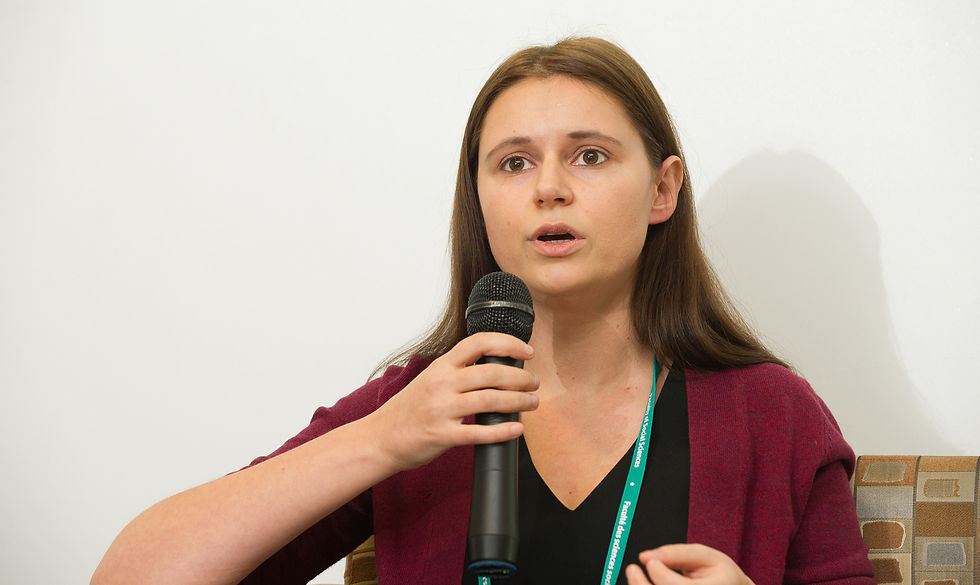ARCHIVES Danyliw Seminar 2017
ARCHIVES Danyliw Seminar 2017
Program Committee
Program Committee


ARCHIVES Danyliw Seminar 2017
Natalia Stepaniuk
U of Ottawa, Canada
Dein Syria per speciosam interpatet diffusa planitiem. hanc nobilitat Antiochia, mundo cognita civitas, cui non certaverit alia advecticiis ita adfluere copiis et internis, et Laodicia et Apamia itidemque Seleucia iam inde a primis auspiciis florentissimae.
PRESENTATION
Abstract
How Ukrainian Volunteers Enact the Rights
of Civilians and Combatants in War-Torn Donbas
Ukrainians responded to the outbreak of violence on Donbas by mobilizing, often voluntarily. In April 2014, partial military mobilization was announced, with hundreds of thousands of men called to fight for the Ukrainian state. Volunteer battalions rapidly emerged to assist in the defense of the country. The National Guard was re-established to join the military operations, and civilian volunteers began to fundraise, procure and provide for those impacted by war. A multitude of volunteer networks mushroomed in the ‘rear’ to take care of soldiers, war veterans, and those injured or displaced from their homes. Initially, the volunteers’ efforts were focused on providing emergency assistance to war-affected communities. Given the range and scope of the needs generated by the mass military mobilization, the emergency assistance ranged from supplying food and medication at the hospitals to procuring combat-related equipment and delivering it to the front.
This article explores some less visible aspects of war volunteering in Ukraine. The first part scrutinizes the efforts of volunteers to ensure the substantive citizenship of those impacted by war, including the ways volunteers have enacted the legal rights of combatants and war-affected civilians in practice. The article posits this type of volunteer engagement is a collectivizing enterprise that de-individualizes the costs of war, including the material, administrative and social burdens of war-affected populations. The second part analyzes the narratives volunteers have produced to create meaning for their engagement, to sustain it and to implicate others in it. More specifically, it looks at discourses of worthiness, gratitude and precarity in relation to war-affected communities, interpreting these through the lens of affective citizenship – an understanding of citizenship in relation to emotions and feelings arising in particular social and physical spaces (Fortier 2016). Through their emotional investment and related actions, volunteers have expanded the space of belonging for war-affected individuals in a way that positions them as valued members of a larger community. The article points to the ways these discourses act as sites through which the responsibilities of the individual, the collective and the state were renegotiated amidst war and the state’s limited capacity to care for those impacted by it.
To examine exactly how and why civilian volunteers in Ukraine worked to reinforce the legal rights of those around them, I draw on ethnographic fieldwork research I conducted in Kharkiv, Odesa and Dnipropetrovs’k, cities close to the warzone, in the summer of 2015. I rely on data from 95 interviews and participant observation of voluntary engagement at the rear. In conversations with my respondents, I heard multiple stories about the gap between legal rights conferred by the state on war-affected individuals and the realities on the ground. While the cases the volunteers dealt with are diverse, most interventions revolve around the recognition of legal status, the correction of unjust treatment by local state actors and military personnel and the provision of free access to healthcare. Ultimately, these efforts are directed at making war-affected populations feel they are worthy members of the community and helping them deal with precariousness amidst the state’s frequent failures.